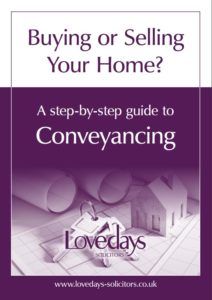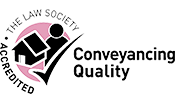- You & Your Family
- Your Job
- Family Law
- Divorce and Separation
- Finances on Divorce
- Dissolution of Civil Partnership
- Separation
- Cohabitation Agreements
- Finances on Breakdown of Cohabitation Relationship
- Prenuptial Agreements
- Grandparents' Rights
- Step-Parents' Rights
- Child Maintenance
- Parental Responsibility
- Paternity Disputes
- Buying Property Jointly
- Probate
- Wills
- Your Property
- Conveyancing
- Partnerships
- Disputes
- Boundary Disputes
- Dealing with Rent Arrears
- Japanese Knotweed Claims
- Landlord and Tenant Disputes
- Landlord Harassment & Illegal Eviction
- Negligence Claims Against Builders & Developers
- New Build Property Disputes
- Noisy Neighbour Disputes
- Personal Debt Collection
- Property Misrepresentations Claims
- Rights of Way Disputes
- Section 21 No Fault Evictions
- TOLOTA Claims
- Tree & Hedge Neighbour Disputes
- Your Business
- About Us
Right of Way Disputes
Right of way disputes are common amongst neighbours, especially those who are unclear of the extent of the right of way.
{quote}
What is a Right of Way?
There are two types of right of way in the UK; public rights of way and private rights of way. A public right of way is a legal right for members of the public to pass and re-pass over a specific piece of land. Public rights of way are found all over the country and can take the form of footpaths, bridleways, restricted byways, and byways open to all traffic.
A private right of way, on the other hand, is a legal right for a specific person or group of people, normally to pass and re-pass over a piece of private land. Private right of ways may exist for a number of reasons such as providing access to a public highway, agricultural land, recreational land, residential property or utilities.
Understanding Easements
Private rights of way frequently become a point of dispute between neighbours, so it is important to understand the different types of right of way and how they are created. Private rights of way are granted by an “easement”; generally there are 3 types of easement - an express grant, implied grant, or long use.
Express Grant
An easement created by an express grant is the most common type of private right of way in the UK and are often created when land is sold or divided. An express grant must be written down and is typically found in a deed made at the time of sale of the property. Express grants typically provide the seller of the land access or use of the land sold after the sale has taken place. Express grant easements can also be put in place for a fixed term, for example while a new house is being built.
It is also important to note that usually the person who will benefit from the easement pays for the preparation of the deeds but this can sometimes be negotiated.
Implied Grant
An implied grant easement is where the rights are implied by law but not specified in a deed. Implied grant easements typically arise when a landowner sells their property, for example where piece of land adjoining to another is sold and the only method of access for the seller’s remaining land is through the piece that was sold.
Long Use
Long use easements are granted when land has been openly used by a non-owner without permission from the owner. This type of easement will allow for the continued use of the land in this way if the beneficiary of the easement has been using the land continuously for at least 20 years.
{quote}
Common Issues in Right of Way Disputes
When it comes to rights of way disputes, there are a number of reasons why they may arise.
Substantial Interference
Substantial interference in rights of way refers to any interference that prevents or significantly hinders the use of a right of way for its intended purpose. The courts will consider a number factors when deciding if the interference is substantial, such as:
- The nature of the interference.
- The extent of the interference.
- The impact of the interference on the users of the right of way.
Some examples of substantial interference include:
- Erecting a fence or gate across the right of way.
- Digging a ditch across the right of way.
- Dumping rubbish on the right of way.
These are just some examples of what the courts may view as a substantial interference but each case is likely to be fact-specific so this is not a complete list and some of the example above also have exceptions to the general rules. If you believe that your neighbour has substantially interfered with your right of way, contact our solicitors today to seek advice and further guidance on your case.
Unauthorised Land Use
Unauthorised land use in rights of way is any use of the right of way that is not permitted by the easement or by law. This could include actions such as:
- Erecting structures on the right of way (e.g. fences, gates, or buildings).
- Placing objects such a vehicles or machinery on the right of way.
- Change the surface of the right of way (e.g. by digging it up or paving it).
- Using the right of way for purpose that is not permitted (e.g. driving a car on a footpath).
Managing Rights of Way Disputes
It is highly recommended that you seek the advice of a solicitor when looking to resolve a right of way dispute. The best course of action in resolving the dispute can vary depending on the details of the case and points of contention within the dispute itself.
However, there are some important aspects to consider such as maintaining friendly relations and knowing the boundaries of the properties involved with the dispute.
Maintaining Friendly Relations
Maintaining friendly relations with the other party involved with the dispute is an important aspect for the continued use of the easement. If the dispute cannot be resolved internally, there are steps that can be taken to maintain the relationship, for example through the use of mediation to resolve the dispute outside of the court system. Neighbour disputes and right of way disputes can impact on the value of your property and how easy it might be to sell at a later date, so it is important to maintain good relationships with neighbours wherever possible.
Knowing Property Boundaries
Understanding your property boundaries is another important aspect of managing a right of way dispute. By knowing your own property boundaries and where the right of way begins can help determine where actions have been taken that are not permitted within the grant of easement.
How Lovedays Solicitors Can Help
With dispute resolution or court proceedings the longer the issue is left the worse it can get. If you have an issue please do not hesitate to contact us for an initial consultation.
Our team can help guide you through the best course of action for your case as well as undertake mediation between the parties involved in the dispute. In addition to this, our property lawyers can also negotiate on your behalf or represent your interests in court.
{quote}
Frequently Asked Questions
Anyone can use public rights of way, regardless of whether they are a UK resident or not. However, the type of users that are permitted on a particular right of way will depend on the type. For example, only walkers are permitted on footpaths, while walkers, horse riders, cyclists, and mobility scooter users are permitted on bridleways.
You may have a private right of way if you have an express grant from the landowner, or if you have been using the right of way continuously and without objection for at least 20 years. You can also check your property deeds to see if they mention any rights of way.
The holder of a private right of way has the right to pass and re-pass over the land for the purpose specified in the right of way. However, they also have a responsibility to respect the landowner's rights and to avoid causing any damage to the land.
Get Support Today
If you have found yourself in the middle of a right of way dispute, please do not hesitate to contact our team today. Our expert property lawyers can provide advice on the best course of action for your case as well as undertake mediation or negotiate on your behalf.

Free Guide
If you don’t know your leasehold from your freehold, then get our Free Conveyancing Guide. It contains details about the steps you will need to take with any property transactions. The Guide giving you detailed guidance on what your lawyer will be doing for you and what to look out for.


Lovedays Solicitors, Brooke-Taylors Solicitors, Potter and Co Solicitors and Andrew Macbeth Cash and Co Solicitors are the trading names of Derbyshire Legal Services Limited which is a company registered in England and Wales under company number 08838592. Registered office Sherwood House, 1 Snitterton Road, Matlock, Derbyshire, DE4 3LZ.
Authorised and Regulated by the Solicitors Regulation Authority under SRA ID number 637916.
-
01629 56660
-
This email address is being protected from spambots. You need JavaScript enabled to view it. -
Sherwood House
1 Snitterton Road
Matlock
Derbyshire
DE4 3LZ
© Copyright 2019 Derbyshire Legal Services Limited | Website by WebWorks